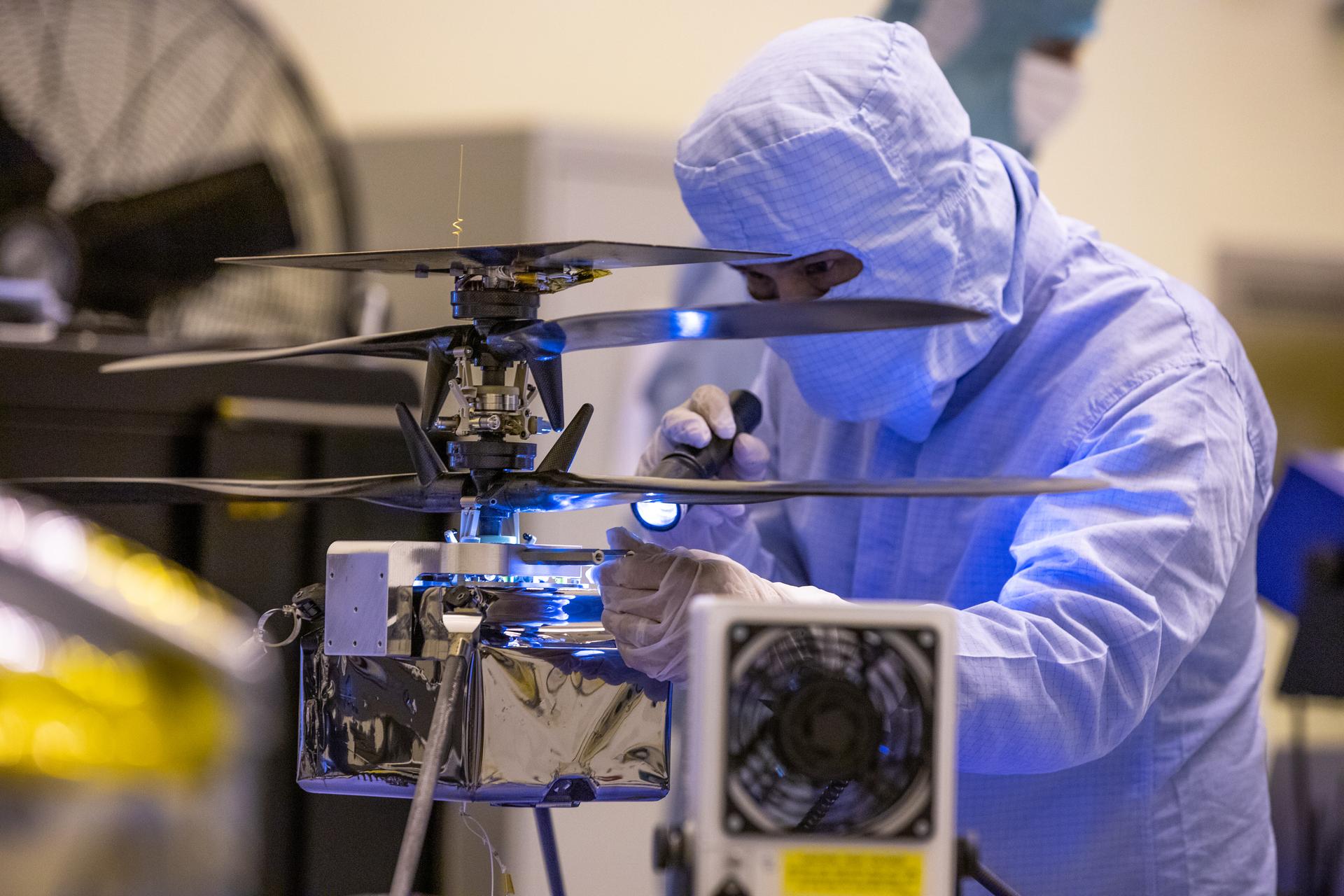NASA's Mars Helicopter makes last spin on Earth before before July launch
It will launch aboard the Perseverance rover.

NASA's next mission to Mars will carry what is meant to become the first aircraft to fly on another planet, and that experimental helicopter just spun its blades on Earth for the last time.
The Mars Helicopter is scheduled to launch in July with the new Mars rover, now dubbed Perseverance, as an add-on project to the primary Mars 2020 mission. NASA is still striving to meet that launch date despite continuing closures enacted to slow the spread of the serious respiratory disease COVID-19 caused by a new coronavirus.
All the components of the Mars 2020 mission are currently undergoing their final prelaunch tests at NASA's Kennedy Space Center in Florida. Among those components are the cruise stage vehicle, which recently finished a test to confirm its mass properties, NASA said in a statement, and the helicopter.
Related: In photos: NASA's Mars 2020 rover mission to the Red Planet
The recent tests on the helicopter included spinning its blades for the last time before launch, during which it reached 50 rotations per minute in the testing airlock, according to the statement. If all goes well, the blades will next spin on Mars sometime in 2021, after the mission touches down in February.
Meeting the summer launch window for Mars 2020 is one of NASA's highest priorities even as much of the agency's centers have closed to on-site work in an attempt to slow the spread of the new coronavirus. Because of the tricky alignment of Mars and Earth, if the agency misses the launch window this summer, it will need to wait two years before it can try again. A Mars mission shared by the European Space Agency and Russia has already met that fate.
- NASA's Mars Helicopter whirls through tests on way to 2020 launch
- Meet 'Perseverance': NASA's Mars 2020 rover has a new name
- 2020 Mars Helicopter could open alien skies to exploration
Email Meghan Bartels at mbartels@space.com or follow her @meghanbartels. Follow us on Twitter @Spacedotcom and on Facebook.
Breaking space news, the latest updates on rocket launches, skywatching events and more!
OFFER: Save at least 56% with our latest magazine deal!
All About Space magazine takes you on an awe-inspiring journey through our solar system and beyond, from the amazing technology and spacecraft that enables humanity to venture into orbit, to the complexities of space science.

Meghan is a senior writer at Space.com and has more than five years' experience as a science journalist based in New York City. She joined Space.com in July 2018, with previous writing published in outlets including Newsweek and Audubon. Meghan earned an MA in science journalism from New York University and a BA in classics from Georgetown University, and in her free time she enjoys reading and visiting museums. Follow her on Twitter at @meghanbartels.

